CUBA: The Horrible “Dictatorship” Providing Shared Parenting Rights
LA GUACAMAYA ROJA
by Marta López Fesser
December 17, 2019
Translated and edited by Walter Lippmann for CubaNews.
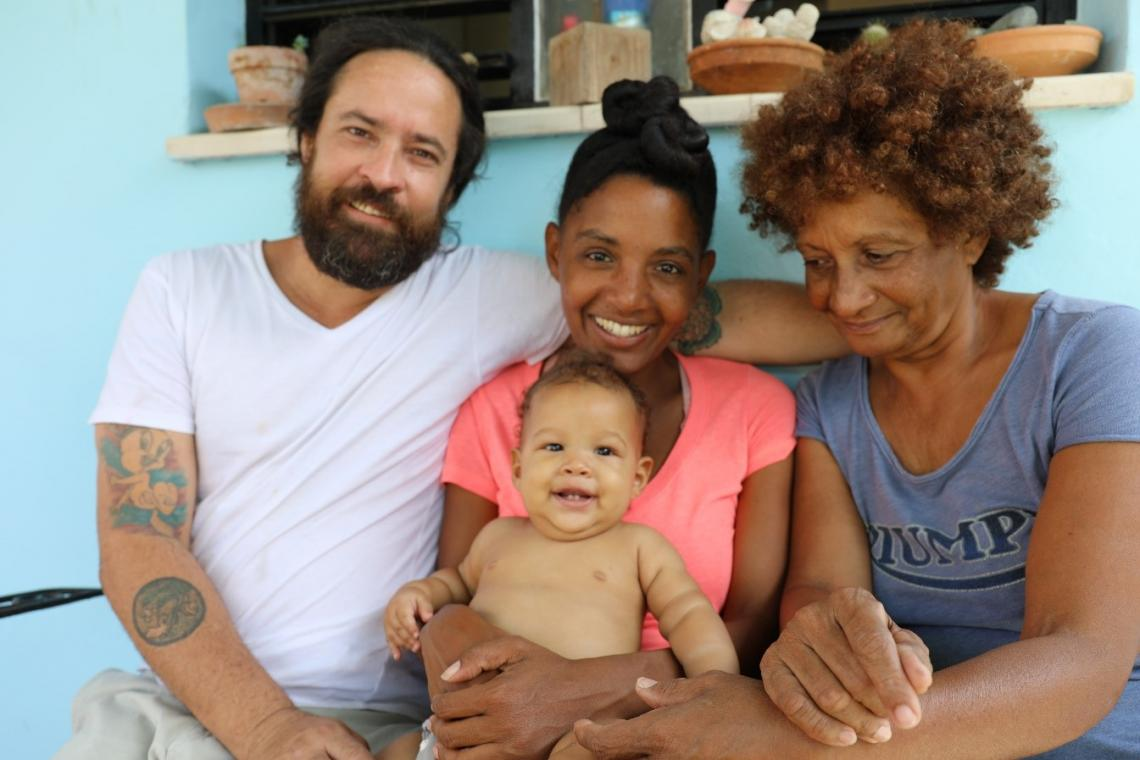
*Free kindergarten for 2 years
*6 months paid maternity leave
*Paid paternity leave
Only 15 countries in the world have these 3 basic policies to facilitate shared parenting. Cuba is the only one in Latin America, it has the happiest babies in the world. reports UNICEF.
In Cuba, thanks to family-friendly policies, couples break gender norms by sharing parental responsibilities.
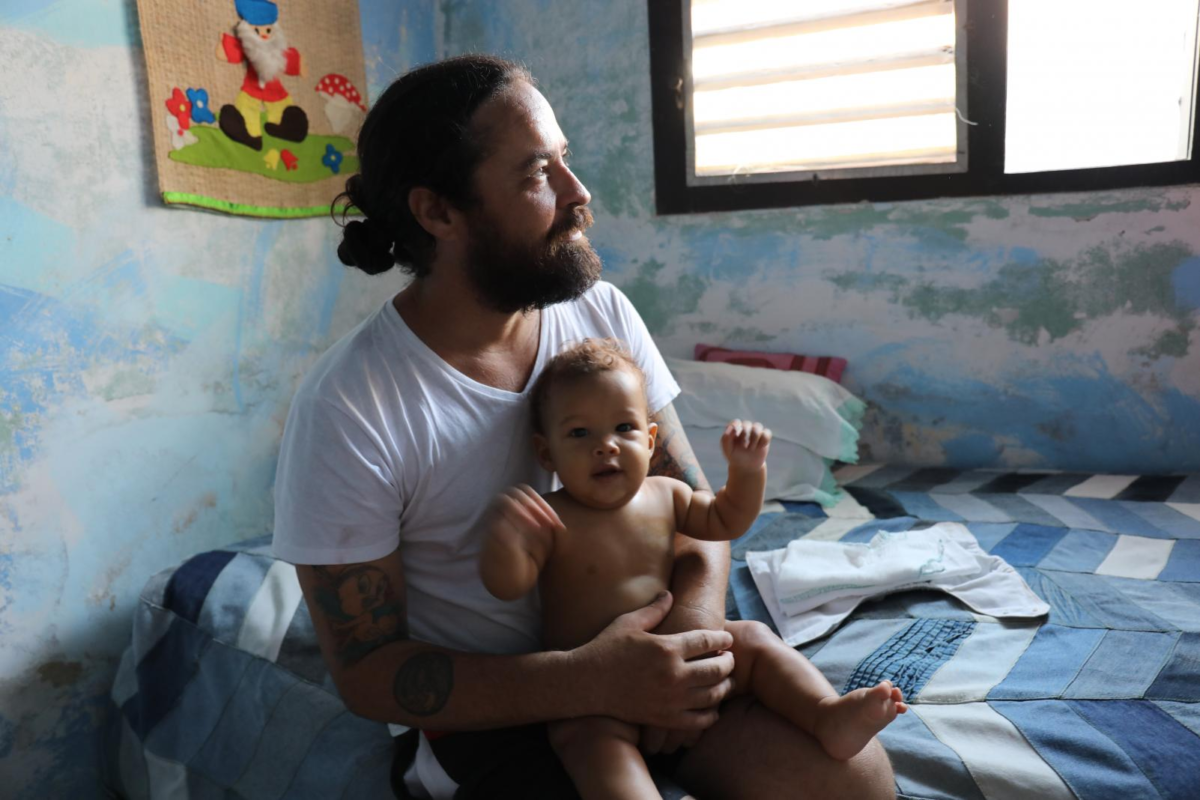
HAVANA, Cuba – When Juan Carlos and Maria decided to start a family three years ago, they knew there was only one way to raise children. “For a family to work, you need a team: that means sharing all the tasks and responsibilities,” says Juan Carlos.
Juan Carlos, who would be a first-time father, did not yet know the intricacies of fatherhood, but he knew he had to be present. “There are things we can’t share, like the discomfort or the physical weight of the pregnancy, but I can be there for [Maria], so that we can learn together and share this journey,” he says.
Juan Carlos did his best not to miss any of Maria’s medical exams before delivery. At the consultation, the couple observed that most of the instructions and advice given them was directed directly to her. Juan Carlos had to insist on his interest in being taken seriously. He wanted to know what his role was, how he could help his son reach his full potential, but he didn’t know who to turn to.
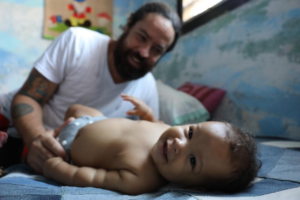
Juan Carlos plays with his youngest son, Oliver, after changing his diaper.
Family-friendly policies in Cuba
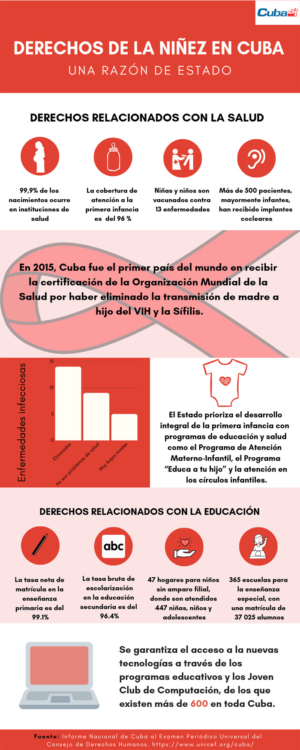
Cuba is one of 15 countries with three basic social policies and programs to help mothers and fathers: free public preschool education for the first two years; a minimum of six months of paid maternity leave to facilitate breastfeeding; and 12 months of paid paternity leave after the birth of the baby.
For a family to work, you need a team: that means sharing all the tasks and responsibilities.”
However, despite these programs and policies, social norms and structural barriers in Cuba make it difficult for men to participate equitably in all stages of child-rearing. Only 18 percent of fathers participate in educational activities with their children during early childhood; only 33.2 percent of children under six months of age receive exclusive breastfeeding benefits, and only 125 fathers were able to take paternity leave between 2003 and 2014.
As a result, many children do not fully benefit from having a paternal figure central to their development.
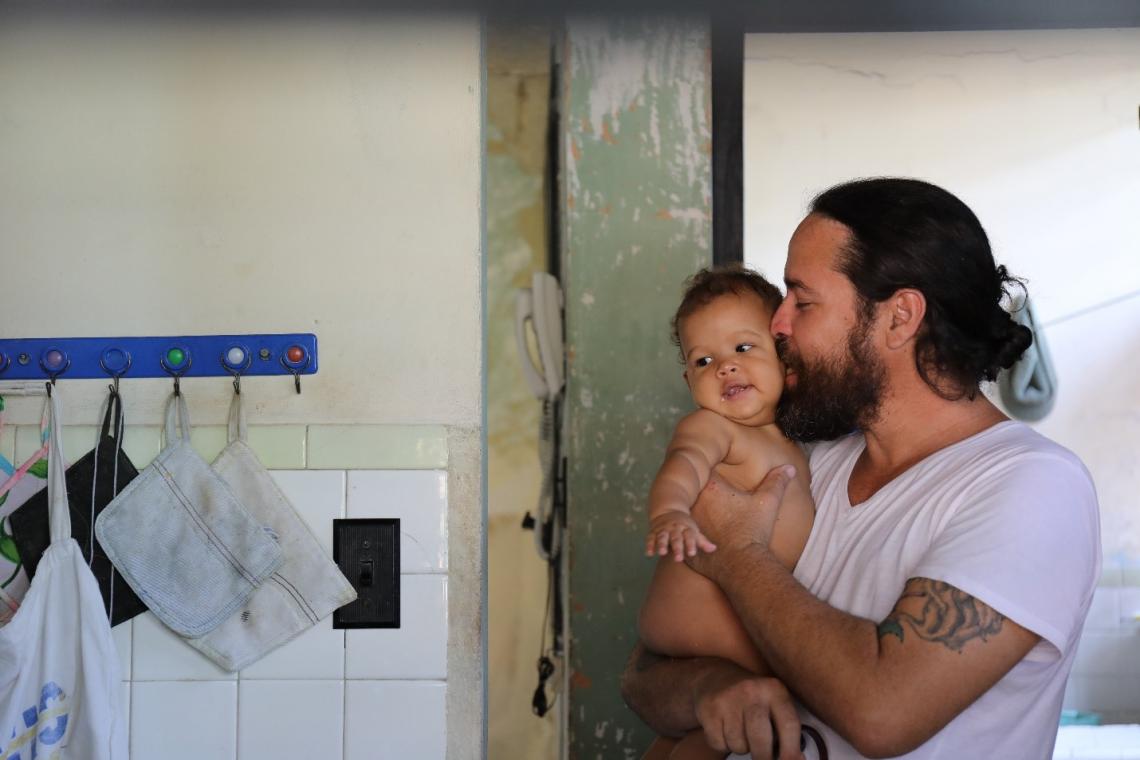
UNICEF Cuba/2019
Leverage critical resources
When Maria recently became pregnant with Oliver, her second child, she and her partner did everything possible to take advantage of the resources at their disposal. “You can never be prepared enough,” says Maria. “Being a mother or father means learning that what you do and what you don’t do has lasting repercussions on the development and happiness of your children. It’s a deep, vital reflection that encourages you to want to do things right from the beginning.
On this occasion, they learned that they had access to free childbirth classes. “They were very useful; we met other couples in the same situation,” she says.
They also knew that MarIa had the right to choose a person to accompany her in childbirth, and Juan Carlos wanted to take advantage of this opportunity. “For me, it was a vital and unrepeatable experience that I believe all parents should live. It’s hard to imagine the pain and sacrifice that women have to suffer,” he says. “That arrival commits you for life.
Juan Carlos learned about these rights and services through the communication materials of “Padre desde el principio,” [Father From the Beginning] an initiative led by Cuba’s Ministries of Education and Health with help from UNICEF. The aim is to engage fathers by informing them of their rights, responsibilities and the benefits of shared fatherhood in an equitable manner.
Maria exclusively breastfed her two children for the first six months of their lives. “It would not have been possible without Juan Carlos. It is true that I am the only one who can feed them, but Juan Carlos was the one who got up at night to bring them to me and who took care of the household chores.
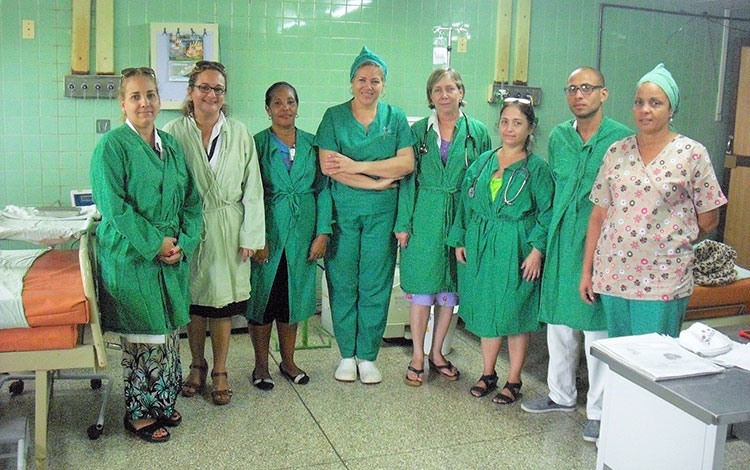
Combating gender roles for future generations
Juan Carlos was also the one who stayed at home with his children when Maria’s maternity leave ended, so she was able to return to work. “It’s been a wonderful experience,” he says. “Having a role in [their lives] from the beginning gives you the security to take care of them completely, and enjoy it!”
Maria agrees: “He has not only taken on traditional roles, such as washing and cleaning, preparing food or caring for the baby: they have also spent quality time together, developing a parent-child bond that will be the basis of their relationship in the future.
The “Father From the Beginning” initiative promotes equal parental responsibility from birth, precisely because if parents are involved from the beginning, they are more likely to continue to be involved throughout their children’s lives. Parents who are actively involved from the outset not only demonstrate a greater commitment to protecting their children from violence and prioritizing their education and health: they also challenge deeply rooted beliefs and stereotypes of masculinity.
“At first, our neighbors thought that our way of raising our children was strange, but they no longer see it that way,” says Juan Carlos. “I see a change: younger generations are evolving.

You must be logged in to post a comment.